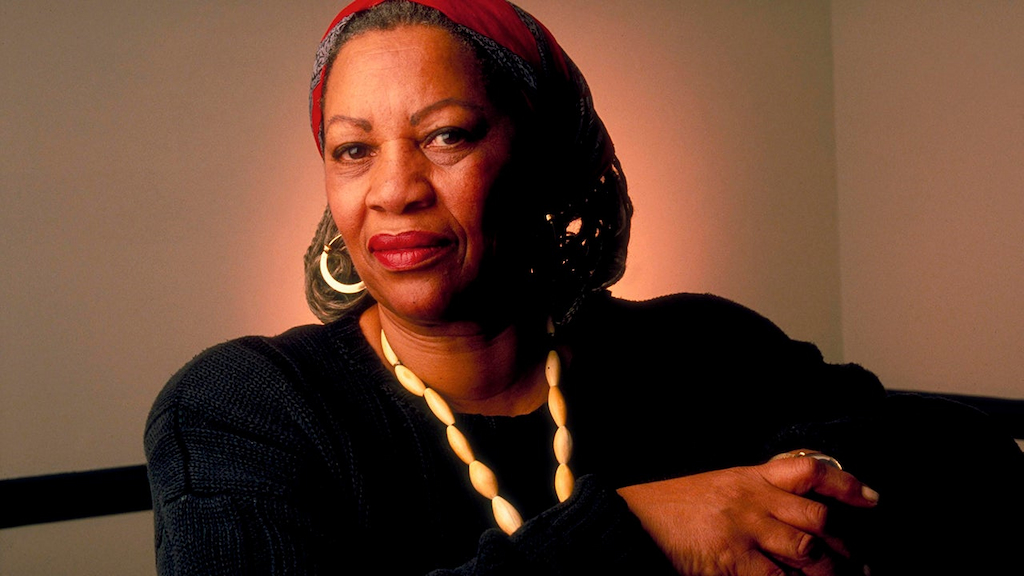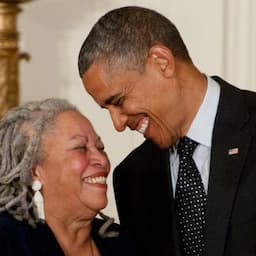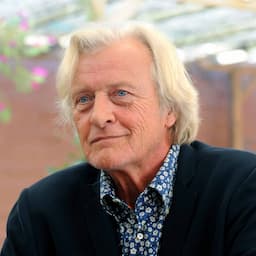Morrison died on Aug. 5, 2019.
Toni Morrison, celebrated novelist and winner of the Nobel Prize in Literature, has died, multiple outlets have confirmed. According to the Associated Press, she died on Aug. 5, 2019, at Montefiore Medical Center in the Bronx, New York City “after a brief illness.” She was 88 years old.
“Toni Morrison passed away peacefully last night surrounded by family and friends,” Morrison’s family said in a statement issued to the AP through publisher Alfred A. Knopf. “She was an extremely devoted mother, grandmother, and aunt who reveled in being with her family and friends. The consummate writer who treasured the written word, whether her own, her students or others, she read voraciously and was most at home when writing.”
“Toni Morrison’s working life was spent in the service of literature: writing books, reading books, editing books, teaching books. I can think of few writers in American letters who wrote with more humanity or with more love for language than Toni,” Sonny Mehta, the current editor-in-chief of Alfred A. Knopf, said in a statement issued on Twitter. “Her narratives and mesmerizing prose have made an indelible mark on our culture. Her novels command and demand our attention. They are canonical works, and more importantly, they are books that remain beloved by readers.”
Born Feb. 18, 1931, in Lorain, Ohio, Morrison grew up in a household of heritage and integrity. As a child, she learned about language through folktales and songs. She became an avid reader, with Jane Austen and Leo Tolstoy listed among her favorite authors at the time.
In 1949, Morrison enrolled at Howard University in Washington, D.C., where she faced racial segregation. She eventually earned a B.A. in English before going on to earn a Master of Arts from Cornell University. She quickly began a long teaching career, first at Texas Southern University and then at Howard. In 1965, Morrison joined a division of Random House, ultimately becoming the publisher’s first black woman senior editor of the fiction department. There, she would spend 15 years playing a vital role in mainstreaming black literature, championing African-American authors like Angela Davis and Gayl Jones, while also working on Muhammad Ali’s autobiography, The Greatest.
Morrison soon turned to writing, coming up with the story for her first novel, The Bluest Eye, which was published in 1970. As her career continued, she would develop a formidable relationship with editor Robert Gottlieb of Alfred A. Knopf, who worked on most of Morrison’s novels. Following The Bluest Eye, she published Sula in 1973, Song of Solomon in 1977 and Tar Baby in 1981.
Beloved, Morrison’s most celebrated novel, came in 1987. It was inspired by the true story of Margaret Garner, an African-American woman who escaped slavery and became notorious for killing her own daughter rather than letting her become enslaved. The book was a critical and commercial success, becoming a best-seller for 25 weeks.
The novel also caught the attention of Oprah Winfrey, who spent a decade trying to adapt it for the screen. During that time, the renowned talk show host named Song of Solomon her first book club pick on the Oprah Winfrey Show, giving the author what’s known as the “Oprah Effect,” boosting her popularity around the nation. In 1998, Winfrey starred as Sethe alongside Danny Glover and Thandie Newton in director Jonathan Demme’s adaptation of Beloved.
Later, while honoring Morrison with a lifetime achievement award by the Center of Fiction, Winfrey said that Morrison “is our conscience, she is our seer, she is our truth-teller.”
Before the film adaptation came out, Morrison released two more novels to complete the Beloved Trilogy -- Jazz in 1992 and Paradise in 1997. Following that collection, Morrison went on to write four more novels, as well as a number of children’s books with her son, Slade. She also edited several successful nonfiction books. Most of her work dealt with the black experience in America, famously saying, “In this country American means white. Everybody else has to hyphenate.” Her final book was a collection of essays, The Source of Self-Regard: Essays, Speeches, Meditations, which was published in 2019.
She returned to academia in 1984, teaching writing at State University of New York. In 1989, she left that position for Princeton University, holding the Robert F. Goheen Chair in the Humanities until her retirement in 2006.
Beloved marked the first of many accolades to be bestowed upon Morrison during her career. She won the Pulitzer Prize for fiction in 1988 and was awarded the Nobel Prize in Literature in 1993. She was also honored with the 1996 National Book Foundation's Medal of Distinguished Contribution to American Letters. In 2000, she received the National Humanities Medal from President George W. Bush, and in 2012, President Barack Obama awarded her with a Medal of Freedom.
Toni Morrison: The Pieces I Am, a feature documentary about the writer's life and career, premiered at the 2019 Sundance Film Festival and was later released in theaters by Magnolia Pictures.
Following the announcement of her death on Tuesday, many remembered Morrison with one of her most poignant and prophetic quotes: “We die. That may be the meaning of life. But we do language. That may be the measure of our lives.”
RELATED CONTENT:




